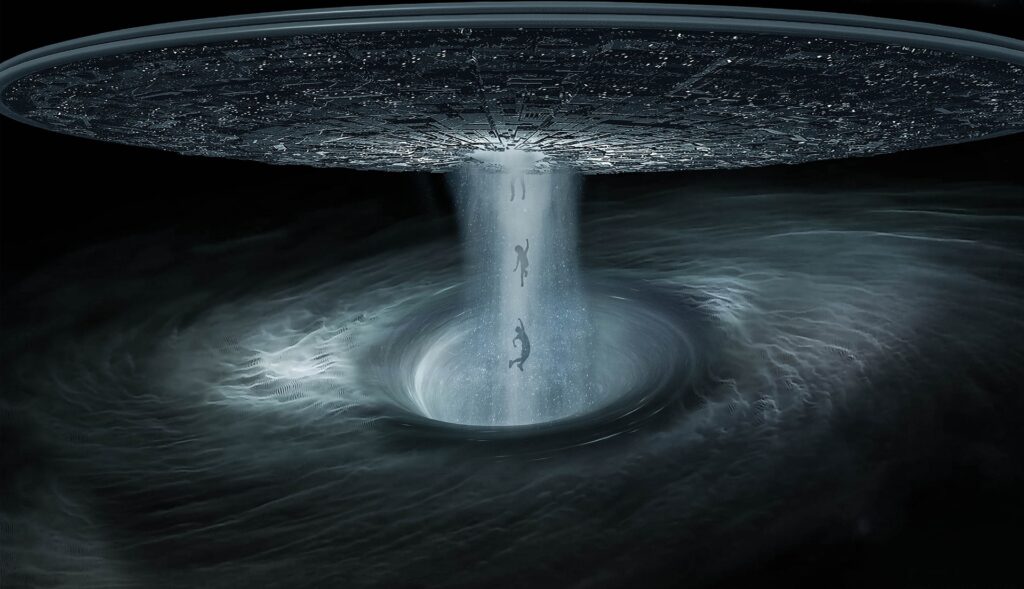Jinns, also known as Djinn or Genies, hold a significant place in Islam, both its theology and culture. These supernatural beings are mentioned extensively in Islamic texts, including the Quran and Hadith, and their presence has influenced Muslim beliefs and practices for centuries!
This blog will delve into various aspects of jinns, from their origin and nature to their roles in Islamic rituals and their portrayal in Islamic literature. We will also explore the concept of jinns from a scientific perspective and conclude by considering their reality based on both religious and scientific viewpoints.
The origin and nature of Jinns
In Islamic belief, Jinns were created by Allah from a “smokeless, scorching fire” long before the creation of humans, who were made from clay. This unique origin gives jinns characteristics that distinguish them from other beings in Islamic cosmology, such as humans and angels.
- Physical and metaphysical properties: Jinns are generally invisible to humans but possess the ability to shape-shift into various forms, including animals, humans, or even ethereal beings. They are believed to be capable of incredible feats, such as moving at great speeds or covering vast distances instantaneously.
- Free will: Unlike angels, jinns possess free will, allowing them to choose between good and evil. This makes them more akin to humans in terms of moral responsibility, as they are judged by Allah based on their actions.
Don’t confuse Jinns with aliens or extraterrestrial life, as the former, according to Islam, lives amongst humans.
Types of Jinn in Islam
The Islamic tradition categorizes jinns into different types, each with unique characteristics:
- Muslim Jinns: These jinns follow Islam and lead righteous lives, worshipping Allah like devout humans.
- Non-Muslim Jinns: These jinns do not adhere to Islamic teachings and are often associated with malevolent actions or trickery. They can be rebellious and harmful to humans.
- Specific Types:
- Marid: Often depicted as powerful and rebellious, the Marid are typically considered the most dangerous and difficult to control.
- Ifrit: Known for their strength and cunning, Ifrits are usually malevolent and are sometimes invoked in folklore to explain unexplainable events.
- Shayatin (Shaytan): The term “Shayatin” refers to evil jinns, akin to devils, who lead humans astray and are linked with Satan.
Jinn in the Quran and Hadith
Jinns are mentioned numerous times in the Quran, emphasizing their significance in Islamic teachings.
- Surah Al-Jinn: This chapter is specifically named after the jinn and details how a group of jinn heard the Quran and converted to Islam. It highlights their ability to understand and choose to follow the divine message.
- Jinn in the Quran and Hadith: In addition to Surah Al-Jinn, jinns are mentioned in various other parts of the Quran, where their interactions with humans, their creation, and their responsibilities are discussed. The Hadiths, sayings of the Prophet Muhammad, provide further insights into how Muslims should interact with or protect themselves from jinns, such as reciting specific prayers or verses, including Ayat al-Kursi.
Interactions between Jinns and humans
- Signs of Jinn in house: It is believed that certain signs, such as unexplained disturbances, strange noises, or an overwhelming feeling of unease, may indicate the presence of a Jinn in a house.
- What do Jinns eat?: According to Islamic tradition, jinns consume bones and the remnants of human food, specifically those over which “Bismillah” (in the name of Allah) has not been said.
- Do Jinn perform Hajj?: There are beliefs in Islamic tradition that jinns perform Hajj, the pilgrimage to Mecca, just like humans. They are also said to engage in other forms of worship, reflecting their spiritual responsibilities.
- Do Jinn pray in mosque?: Jinns are believed to worship in mosques, especially during times when humans are not present. Mosques are considered places of worship not only for humans but also for righteous jinns.
- Are there Jinns in Mecca?: Islamic tradition holds that jinns, like humans, inhabit various places, including Mecca. However, due to the sanctity of the city, it is believed that only righteous jinns dwell there, engaging in worship alongside humans.
A scientific perspective on Jinns
From a scientific point of view, the existence of Jinns is often approached with skepticism. Science generally relies on empirical evidence and observable phenomena, making the concept of invisible, shape-shifting beings difficult to reconcile with modern scientific understanding.
- Psychological explanations: Some scientists suggest that experiences attributed to jinns, such as possession or unexplained occurrences, may be due to psychological conditions like sleep paralysis, hallucinations, or dissociative disorders. These conditions can lead individuals to perceive or believe in the presence of supernatural beings.
- Cultural impact: The belief in jinns may also be seen as a cultural phenomenon, deeply ingrained in societies where Islamic teachings are prevalent. The stories and folklore surrounding jinns often reflect societal values, fears, and moral lessons.
Are Jinns real? A conclusion
The question of whether jinns are real remains a complex issue. From an Islamic perspective, jinns are undoubtedly real, with their existence and characteristics clearly outlined in the Quran and Hadith. For many Muslims, belief in jinns is as natural as belief in angels or other elements of the unseen world (ghayb).
On the other hand, the scientific community generally does not recognize the existence of jinns, as their characteristics and abilities do not align with known physical laws or scientific evidence. While science can offer alternative explanations for experiences attributed to jinns, it cannot prove or disprove their existence in the metaphysical sense.
In the end, belief in jinns is largely a matter of faith. For those who adhere to Islamic teachings, jinns are a reality that shapes their understanding of the world. For others, the concept of jinns may be seen as a fascinating aspect of human culture and belief rather than a literal truth.
Also, if you are interested in such topics, discover what AI has to say about life after death!
FAQ
Jinns are believed to have various abilities, including shape-shifting, flying, moving at incredible speeds, and becoming invisible to humans.
Jinns are commonly referred to as “genies” in English.
Jinns can take on multiple forms, such as animals, humans, or shadowy figures. They are often depicted as shape-shifters.
Jinns are believed to understand and speak many languages, including Arabic, as per Islamic tradition.
Jinns are thought to live much longer than humans, sometimes for thousands of years.
Yes, according to some Islamic traditions, jinns are believed to inhabit graveyards and other desolate places.

